They know what to do with your plastic
The Ukrainian entrepreneurs who aren’t giving up on their eco-ambitions.
Dmytro rents workshop space on the premises of a former Soviet factory. Designed to employ people living with visual impairments, today, the premise is owned by the Chernihiv Association of the Blind, a 36-person strong organization.
Working with a simple mix of recycled plastic, sand and dye, Dmytro and his team - Vitaliy and Slava, who was born with reduced sight - produce multiple paving slabs and roof tiles each day. In this northern Ukrainian region bordering Belarus and the Russian Federation, the growing business has only one rival: concrete.
“Our products are three times stronger than concrete, much more environmentally friendly and can be used up to 70 years,” explains Dmytro, the business owner.
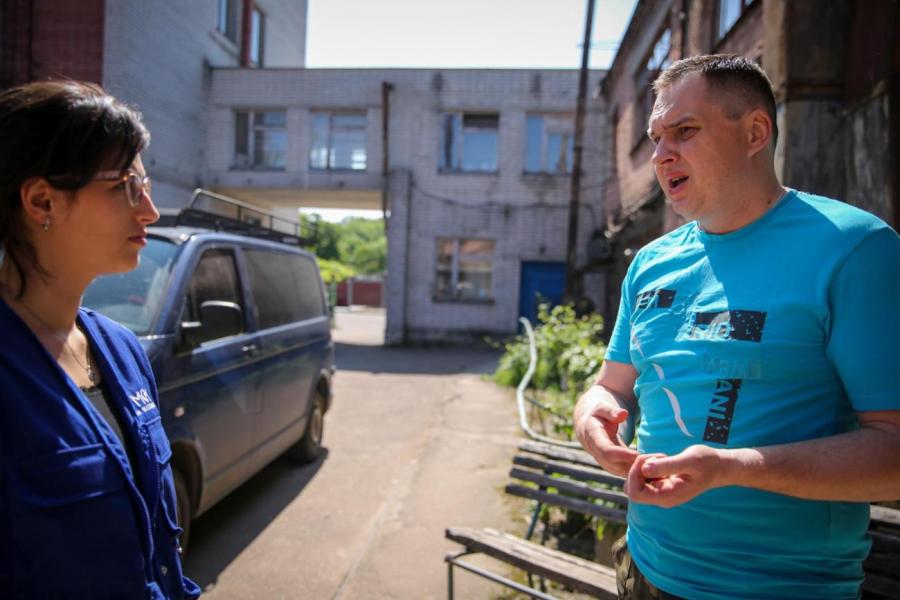
Having established the business in 2008, he soon grew it from solely retailing used plastic to recycling the plastic into construction materials. But last year, production was put on hold. Both the owner and employees had to flee Chernihiv as the city was under siege. Dmytro’s wife and five-year-old son crossed into Poland but he stayed behind in western Ukraine. Soon Slava, along with his wife and two small children, joined Dmytro. They lived together but their savings soon ran out and so, both men took on part-time work and seasonal jobs as.
After nearly a year, the business started to receive orders again.
“This way I knew the time had come. The city had recovered a little and people have been returning. Despite rockets overhead, we had to get on with life somehow,” he says, describing the decision he made to return.
After the hardest year of his life, an unexpected opportunity meant that he could not only help his business recover but expand it further. He learnt about a call for business grants from the International Organization for Migration (IOM) supported by the people of Japan and he applied. Having won the grant, he plans to develop a website, purchase an industrial mould and a larger stock of recycled plastic.
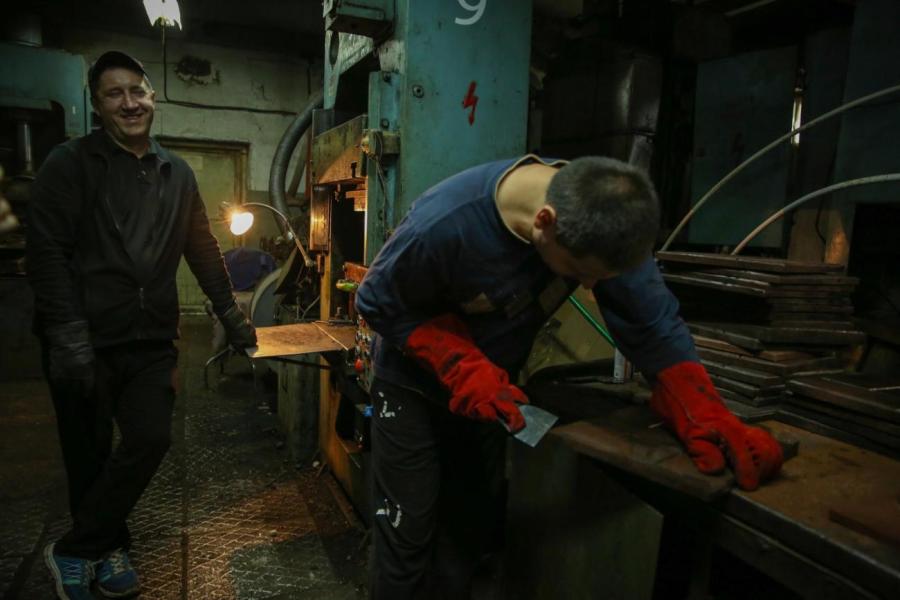
“I also plan to create four new jobs thanks to the grant. Three of them will be for people with visual impairments, as sometimes it is hard for them to find a job,” Dmytro shared his aspirations, having been influenced by his relationship with his landlord, the Chernihiv Association of the Blind.
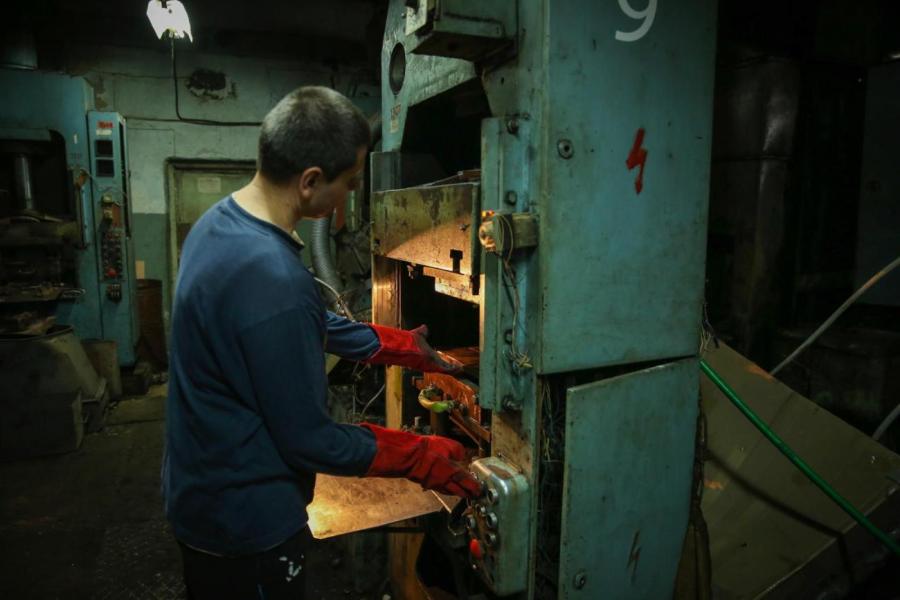
Dmytro has come a long way from selling plastic products to producing recycled materials. Being self-taught, he tailored the technological process to make it unique to his business. The team buys raw material from several locations around the city, where locals can bring used plastics. Then this mass is crushed with sand and dye, melted and put into a mould.
After several minutes, the product is ready. Chernihiv Region was severely damaged by the fighting and is still under shelling, making durable construction material produced vital to sustainable reconstruction.
Outside of work, 40-year-old Dmytro is an avid football player. In fact, he is the oldest player in the local team. But now even this passion has taken a back seat. He is eager to spend every spare hour with his family after a year apart: “My son speaks Polish better than Ukrainian, so I speak with him in our native language to prepare him for school next year”.
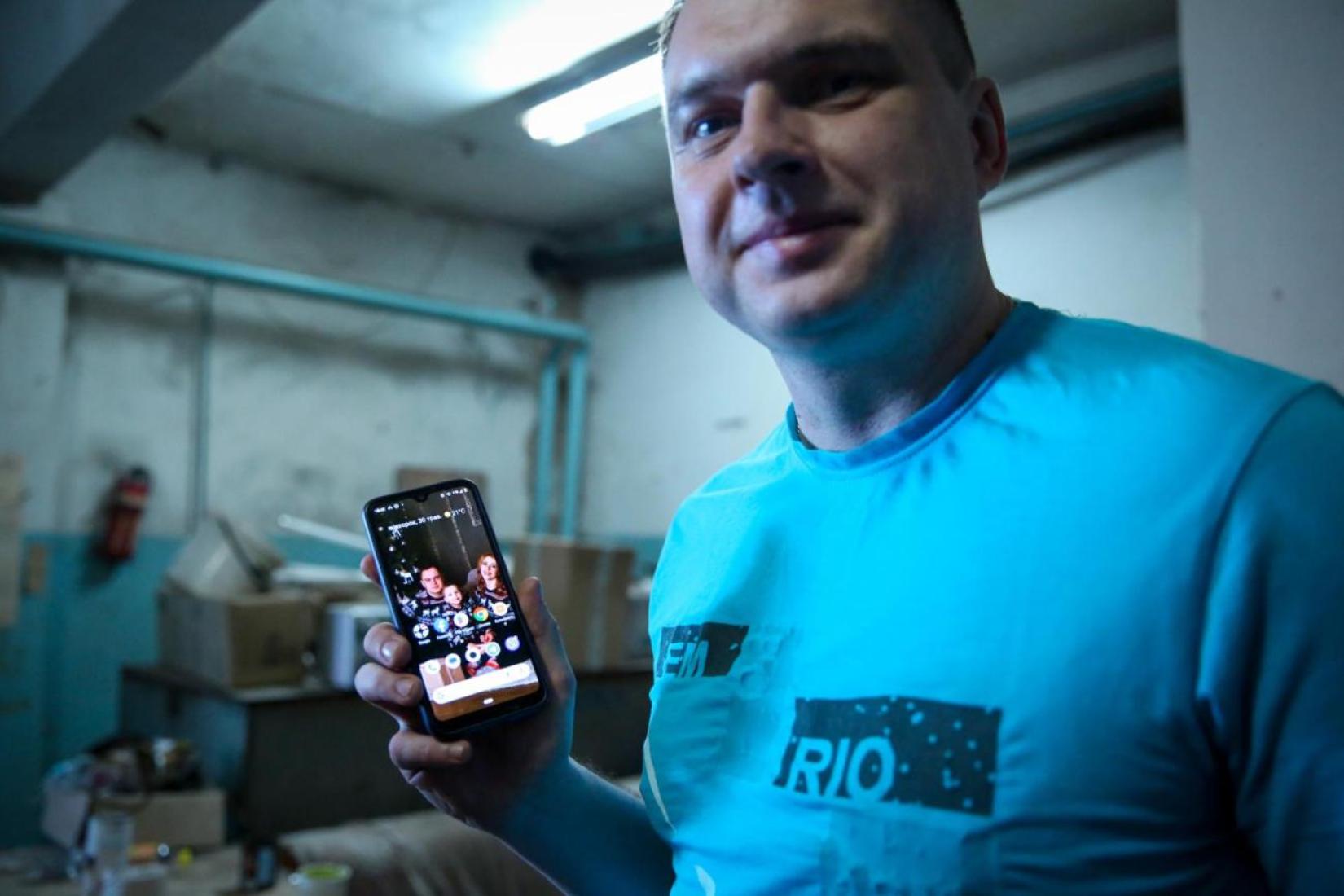
Plastic production has increased 200-fold over the past 60 years and it continues to grow rapidly.
“Only around 10 per cent of plastic is recyclable so reduction of production is key to beating plastic,” said Michael Newson, IOM Senior Programme Coordinator. “However, the small percentage that can be recycled must be! IOM is proud to partner with small businesses across Ukraine that are using innovative means to recycle plastic, driving the country towards an eco-friendlier future, despite the war.”
Temp-Ukraina, a company founded in Kharkiv in 2016, is another example of how plastic can and should be recycled, turning ordinary waste into useful items.
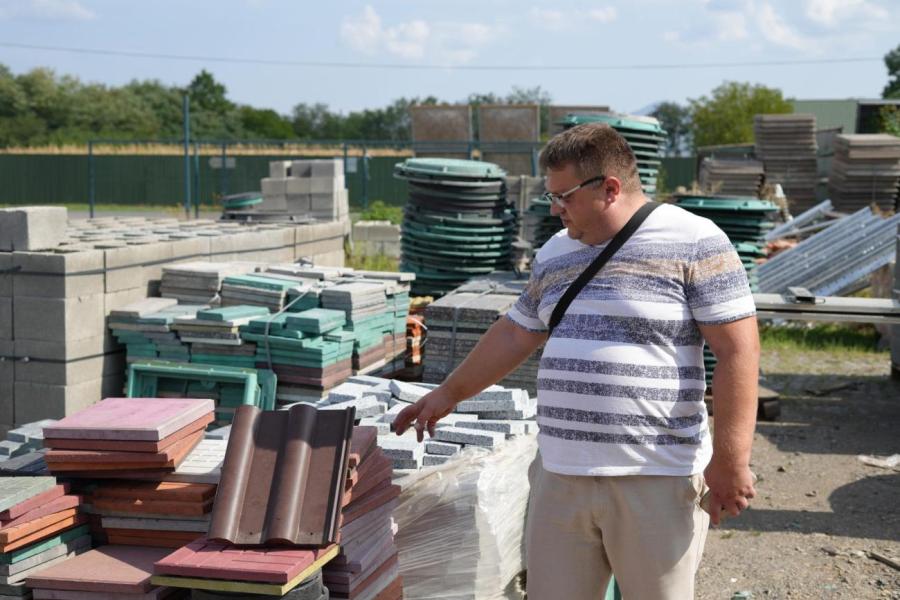
"We give waste a second life. It's not just a job – we feel that we have a social responsibility," says Oleksiy, Director of the company.
"It feels good to know that we are reducing the amount of waste poisoning our planet. When you see riverbanks littered with plastic bags, it evokes nothing but sorrow. We can recycle plastic for the benefit of everyone."
When Oleksiy was planning to start his business, he initially wanted to focus on waste sorting and recovery. At the same time, a close friend was studying in Italy to manufacture rugs and blankets from recycled fabric. Inspired, Oleksiy decided that he wanted to recycle plastic and Temp-Ukraine was born.
The company produces paving slabs and sewage hatches that are now sold not only in Ukraine but also in Poland, Moldova and Romania.
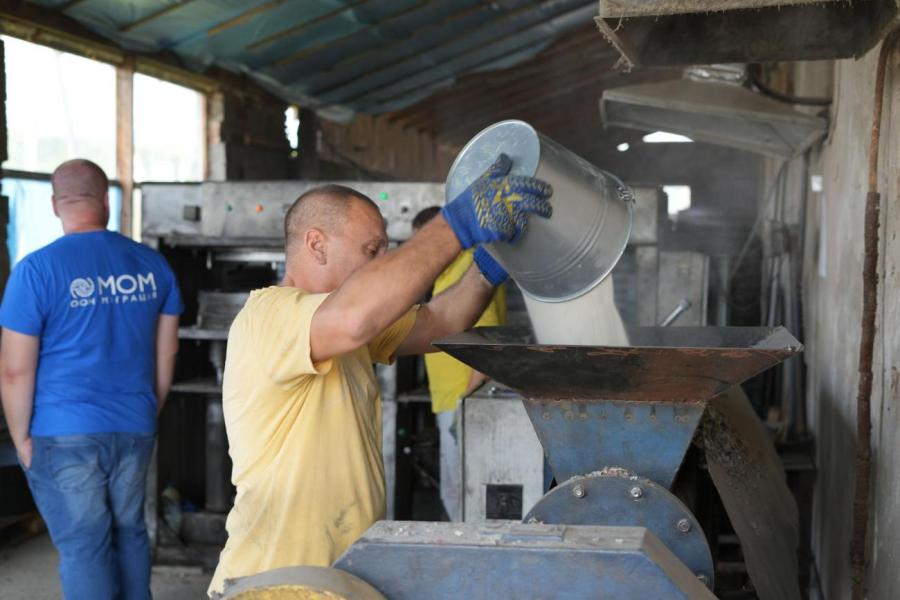
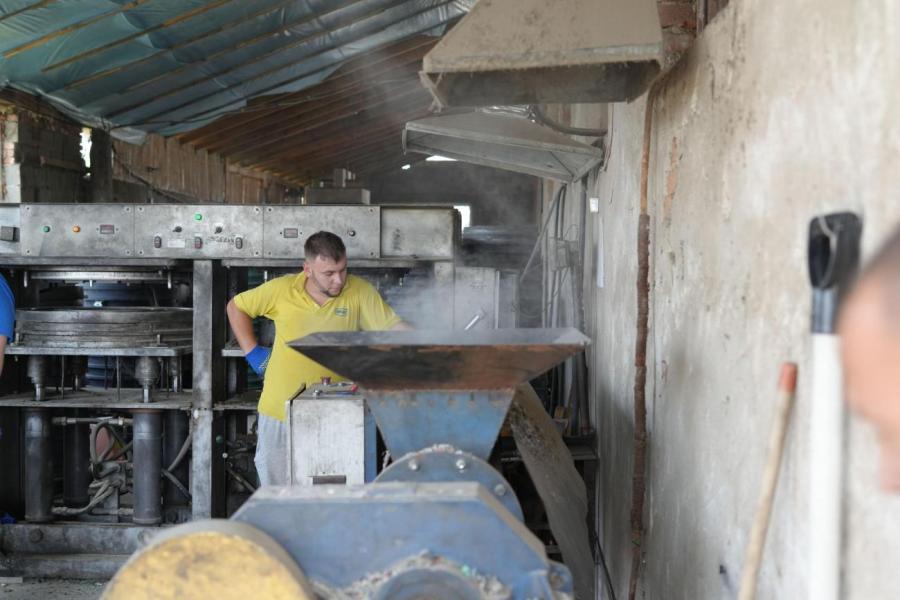
"Currently, we mainly source plastic from greenhouses and agricultural nonwoven fabric. Farmers usually burn all of this waste – imagine the environmental harm it causes. Thanks to our production, we can reduce CO₂ emissions," says Oleksiy.
Due to the war and constant shelling in Kharkiv, the company was forced to relocate to the town of Ilnytsia in Zakarpattia Region. To support the business and help with transitioning to a new location, IOM, through support from the German Government, provided Temp-Ukraine with a grant. As well as renovating the premises, the grant enabled them to purchase a shredder. Now they can process both soft waste and hard plastics, such as plastic crates, containers, bottles and more.
"In one year of work in Zakarpattia, we have recycled about 150-200 tonnes of plastic. It would have taken centuries for it to decompose. And with our help, the waste has been turned into paving stones and sewage hatches. We are happy to make our contribution to protecting our planet," says the Temp-Ukraine team.
This story was written by Olivia Headon, Daria Dovzhenko and Alisa Kyrpychova from the IOM Ukraine team.



